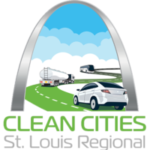Alternative Fuels and Advanced Vehicles
Biodiesel
Biodiesel is a renewable, biodegradable fuel manufactured domestically from vegetable oils, animal fats, or recycled restaurant grease. It is a cleaner-burning replacement for petroleum diesel fuel. Biodiesel meets both the biomass-based diesel and overall advanced biofuel requirement of the Renewable Fuel Standard.
Electricity
Electricity can be used to power all-electric vehicles and plug-in hybrid electric vehicles. These vehicles can draw electricity directly from the grid and other off-board electrical power sources and store it in batteries. Hybrid electric vehicles are fueled with liquid fuels, like gasoline, but use electricity to boost fuel efficiency. Using electricity to power vehicles can have significant energy security and emissions benefits.
Ethanol
Ethanol is a renewable fuel made from corn and other plant materials. The use of ethanol is widespread, and more than 97% of gasoline in the U.S. contains some ethanol. The most common blend of ethanol is E10 (10% ethanol, 90% gasoline). Ethanol is also available as E85 (or flex fuel)—a high-level ethanol blend containing 51%-83% ethanol depending on season and geography—for use in flexible fuel vehicles. E15 is defined by the Environmental Protection Agency as a blend of 10.5%-15% ethanol with gasoline. E15 is an approved ethanol blend for use in model year 2001 and newer light-duty conventional gas vehicles.
Hydrogen
Hydrogen, when used in a fuel cell to produce electricity, is an emissions-free alternative fuel produced from diverse energy sources. Through retail dispensers, it fills passenger vehicles in less than 10 minutes to provide a driving range of more than 300 miles. Research and commercial efforts are under way to expand the hydrogen fueling infrastructure and production of fuel cell electric vehicles.
Natural Gas
Natural gas, a domestically produced gaseous fuel, is readily available through the utility infrastructure. Whether produced via conventional or renewable methods, this clean-burning alternative fuel must be compressed or liquefied for use in vehicles.
Propane
Propane, also known as liquefied petroleum gas (LPG) or propane autogas, has been used worldwide as a vehicle fuel for decades. It is stored as a liquid, and propane fueling infrastructure is widespread.
